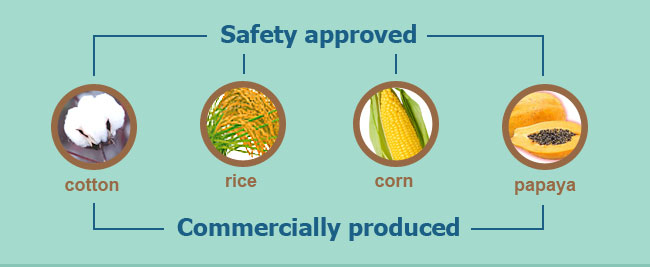HOME >> BUSINESS
China's 'golden hour' for GM rice
Source:Globaltimes.cn Published: 2013-10-20 19:27:00
| Latest News |
Over 300 people dined on 'Golden Rice', a variety of genetically modified (GM) rice, during an event supporting GM foods in Wuhan, Hubei Province on October 19, the Nandu Daily reported.
Supporters were served a porridge featuring the GM grain during the first National 'Golden Rice' Tasting at Huazhong Agricultural University (HAU). Another GM rice variety used for snacks such as moon cakes was also on offer.
Similar events promoting GM rice have been held across 28 cities since May with support from HAU.
More related news
Scholars urge GM rice push
GM food fight
Worries linger despite apology on GM rice test
Dominance of foreign GM brands has Chinese agriculturalists concerned
| GM Rice Struggles |
| Supports |
 Since May, 2013
Since May, 2013Tasting events promoting GM rice have been held across 28 cities since May with support from HAU.
 July, 2013
July, 2013 A total 61 academicians of the Chinese Academy of Sciences and Chinese Academy of Engineering signed a joint petition to the government in support of the industrialization of GM rice. The coalition also accused the Ministry of Agriculture of non-action on the issue.
| Objections |
 August, 2005
August, 2005Hubei Provincial Agricultural Department announced the punishment of several companies in Hubei for expanding areas of farmland dedicated to GM rice and destroyed the planted crops.
 September, 2013
September, 2013 Parents of students in central China who took part in a joint China-US test of genetically modified (GM) rice said they still worry about possible negative impacts of the GM food on their children despite an apology from the US side.
| ‘Golden Rice’ scandal |
 June, 2008
June, 200825 children at a township primary school in Hengnan county were each fed 60 grams of "Golden Rice" on June 2 in a US-China joint research project.
 August, 2012
August, 2012 Greenpeace first disclosed the test of the GM rice by citing a paper published in the August edition of The American Journal of Clinical Nutrition.
 December, 2012
December, 2012 Several Chinese disease control and prevention officials and researchers were punished for certifying the research as ethical and concealing information on the GM food test to relevant parties.
| GM Rice Q & A |
 Q:What is the biggest obstacle facing the industrialization of GM rice?
Q:What is the biggest obstacle facing the industrialization of GM rice?A: The government. When our two GM rice varieties were approved by the Ministry of Agriculture in 2009, we still required several other documents and licenses to industrialize production. Unfortunately, the Ministry did not lay out any specific procedure for industrializing GM rice in order to appease those outspoken voices against GM food.
--Zhang Qifa, director of the National Key Laboratory of Crop Genetic Improvement at Huazhong Agriculture University
 Q: Considering some organizations accuse GM research in China of having links with companies that would benefit directly, how much of this so-called scientific research is driven by profit?
Q: Considering some organizations accuse GM research in China of having links with companies that would benefit directly, how much of this so-called scientific research is driven by profit?A: The biggest profit is that people will yield bigger harvests with less labor and using fewer pesticides. I also hope agricultural companies do earn more in order to fund continued research. And of course, I, as a researcher, am glad to profit from it, though I'm not in great need of the money.
--Zhang Qifa
 Q: At what level is China's current GM technology?
Q: At what level is China's current GM technology?A: This is the best time to implement a national industrialization of GM rice, and the technology is as good as that of the US. However we lack the commercial infrastructure. We must nurture strong agricultural companies to promote GM rice industrialization.
--Zhang Qifa
 Q: As the certification of our two GM rice varieties will expire in May 2014, what can we do in the meantime?
Q: As the certification of our two GM rice varieties will expire in May 2014, what can we do in the meantime?A: What can we do? Though we've spent 11 years applying for certificates and seeking avenues to promote the rice, I feel we are farther from our goal now than ever before.
--Zhang Qifa
 Q: Are GM safe?
Q: Are GM safe?A: As far as the official government stance goes, most GM foods are safe. GM foods which have undergone safety evaluation and are sold in markets are as safe as non-GM foods. GM foods have been on the market around the world for 17 years. People who eat GM foods account for 80 percent of the world's population, and there hasn't been proven case or safety problems related with GM food.
-Lin Min, a member with the State Agricultural GM Crop Bio-safety Committee
Source: Agencies
| GM Food Fight |
| Related coverage |
Growing GM food rumors seed public concern

Web editor: pangqi@globaltimes.com.cn
Posted in: Industries